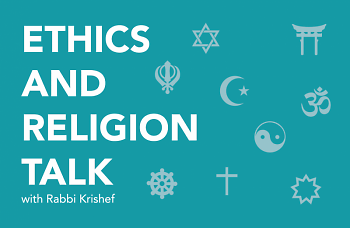Linda Knieriemen, a retired pastor of the Presbyterian Church (USA), responds:
"A question that comes to mind is "what does progress look like in interfaith engagement?” If it means greater global peace, no. I do believe we have more opportunities to engage with faiths other than our own due to greater global mobility and immigration. There is a growing number of Moslems in the US—about double in 20 years. There are two Buddhist temples just in Holland! Our neighbors and the people our children attend school with are more likely to be of a religion other than one’s own than ever before, making conversations possible and convenient.
However societal currents also work against the possibilities that could foster more interfaith engagement. A few (mostly evangelical) Christians remain judgmental and unwilling to enter into meaningful dialogue, spreading a ‘holier than thou’ attitude rather than one of curiosity and interest. For meaningful interfaith dialogue to take place, participants need to be willing to take a closer look at their own chosen faith tradition and risk being changed.
The expansion of media outlets that do not fact check stories related to religious violence or beliefs further prevent interfaith dialogue. It seems that we as a population are happy with our ignorance as it supports our biases.
Currently, I’m disturbed that the existence of Christians living in Gaza and the West Bank are nearly ignored by the media."
Fred Stella, the Pracharak (Outreach Minister) for the West Michigan Hindu Temple, responds:
"On many fronts there has been significant progress. For one, traditionally, interfaith engagement has focused on the relationships within the Abrahamic fold. There has been much more interest in including those of us in the Dharmic family (Hindu, Buddhist, Jain & Sikh). There has also been more of a resistance to move from the nonsense of the “we’re really all the same” philosophy to what is termed “deep dialogue.” This means that the significant theological differences are put on the table and acknowledged. After that, we can work towards efforts where consensus is reached, such as social justice and equity issues."
The Reverend Colleen Squires, minister at All Souls Community Church of West Michigan, a Unitarian Universalist Congregation, responds:
"Each Sunday in our service, we explain that we are Unitarian Universalists and that we celebrate theological diversity and we are an inclusive religious community.
Having said that, I personally struggle with finding places that are truly interfaith in nature. For me, an enjoyable interfaith experience invites everyone to the table and creates no barriers between different religions. It takes being thoughtful about the words you use in your prayers, blessings and benedictions."
Rev. Salvatore Sapienza, the Senior Pastor at Douglas Congregational United Church of Christ in Saugatuck/Douglas, responds:
"Earlier this year, I visited one of our denomination’s churches in Omaha, Nebraska. This UCC church intentionally moved to a “tri-faith” campus, alongside a Jewish temple and a Muslim mosque. All three houses of worship are joined by a circular bridge called Abraham’s Bridge, as it unites all the Abrahamic faith traditions.
The Tri-Faith Initiative, as it’s called, not only promotes interfaith dialogue but also interfaith engagement, where each tradition comes together to celebrate one another’s holy days and to learn one another’s prayers and traditions.
As an ordained interfaith minister, I have attended many interfaith dialogue events throughout the country, where faith leaders come together to speak about their individual traditions. When you profess, however, that your faith tradition is “the only way,” it implies a judgement that all other faith traditions are following the wrong path.
Until we recognize that there are many paths headed to the same mountaintop, we’ll probably keep regurgitating the same platitudes."
Rev. Ray Lanning, a retired minister of the Reformed Presbyterian Church of North America, responds:
"Interfaith engagement has made little to no progress in the last two decades. The efforts of the past sought to find common ground, or “the least common denominator,” among people of faith. As a result, the only participants were those who were least attached or committed to their own faith tradition and were happy to bargain it away. One leader was heard to say that while he could sing the Apostles’ Creed (as a mere liturgical usage or custom), he “couldn’t say it,” that is, as a serious avowal of what he himself believed. While there was much talk about “consultation on church union” (COCU), divisions among Anglicans, Lutherans, Congregationalists, Presbyterians, Baptists and Methodists have only multiplied. Some unions have occurred, but mostly between declining denominations that hoped to stave off extinction."
This column answers questions of Ethics and Religion by submitting them to a multi-faith panel of spiritual leaders in the Grand Rapids area. We’d love to hear about the ordinary ethical questions that come up in the course of your day as well as any questions of religion that you’ve wondered about. Tell us how you resolved an ethical dilemma and see how members of the Ethics and Religion Talk panel would have handled the same situation. Please send your questions to [email protected].
The Rapidian, a program of the 501(c)3 nonprofit Community Media Center, relies on the community’s support to help cover the cost of training reporters and publishing content.
We need your help.
If each of our readers and content creators who values this community platform help support its creation and maintenance, The Rapidian can continue to educate and facilitate a conversation around issues for years to come.
Please support The Rapidian and make a contribution today.
